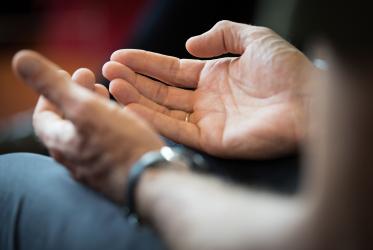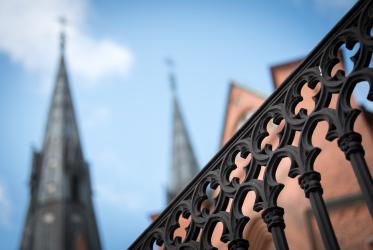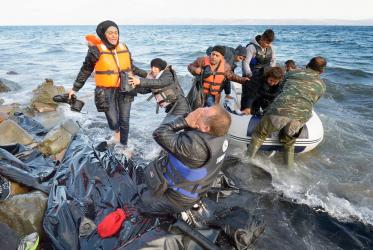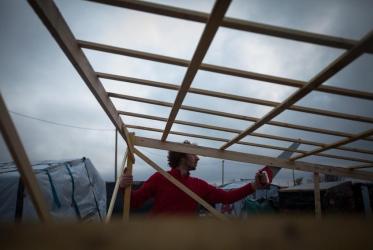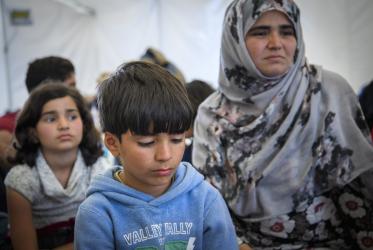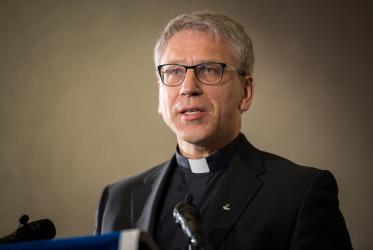Displaying 41 - 60 of 104
WCC Executive Committee envisions future for one ecumenical movement
08 November 2018
WCC moderator, general secretary address Executive Committee
02 November 2018
Romani people seek “lives of decency, dignity, and justice”
27 September 2018
“What really matters is our shared humanity”
14 August 2018
Broken glass of hope grown out of rubble
16 July 2018
World conference on xenophobia, racism, and populist nationalism in the context of global migration
18 - 20 September 2018
Ergife Palace Hotel, via Aurelia 619, Rome, Italy
Tveit speaks on Partnership to End Violence Against Children
15 February 2018
Tveit: “We are called to embrace the gifts of the others”
07 November 2017
